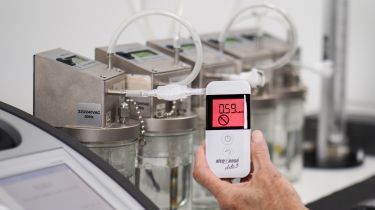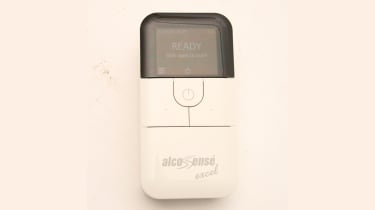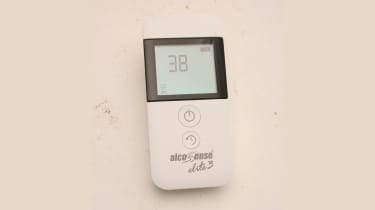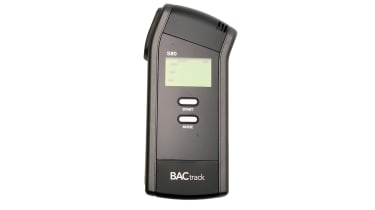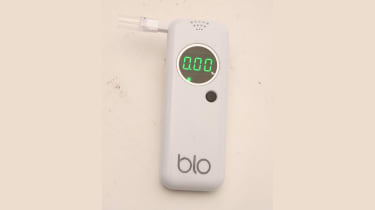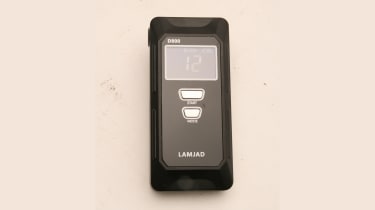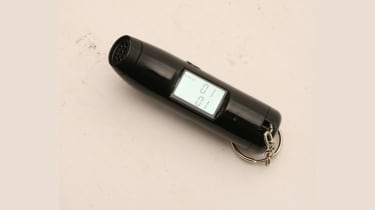Best breathalysers 2022 / 2023
Which units will ensure you’re safe to drive the morning after?
The festive season is looming and with it comes the prospect of office parties, family gatherings and drinks with friends. While arranging transport home after drinking alcohol is what we should all do, how do you know when you’ll be okay to drive again?
There’s no hard-and-fast rule for how quickly the human body absorbs alcohol, which is when you need a breathalyser to ensure you are safe to get behind the wheel again. There’s plenty of choice online, with prices for reusable devices starting from less than £20. But are these breathalysers a good investment when road safety, your driving licence and possibly livelihood are on the line?
To find out we sourced six machines to see if the budget semi-conductor devices can match up to the more expensive and accurate fuel-cell units.
How we tested them
The heart of this test has to be how accurate the readings are. With the help of AlcoSense, we tested each device five times at the UK (excluding Scotland) (0.35 mg/l), Scottish (0.22mg/l) and Irish professional and new driver (0.09mg/l) limits.
The test used a certified breathalyser solution at the highest limit and others made to the same specification for the remaining levels. All the solutions were checked for accuracy against a police-specification device.
Used - available now

2017 Toyota
Aygo
41,626 milesManualPetrol1.0L
Cash £6,387
2022 Ford
Fiesta
52,065 milesManualPetrol1.0L
Cash £12,937
2023 Ford
Puma
30,887 milesManualPetrol1.0L
Cash £14,500
2020 BMW
X3
66,781 milesAutomaticDiesel2.0L
Cash £20,787We also measured how much air was needed to get a result, as required by EN 16280 for breathalysers. This is included because alcohol concentration is most accurate in deep-lung air. Air from the throat could give a false reading.
The units were also checked for performance when cold (simulating after being left in a car during a winter night), following a high alcohol reading and if blowing hard or soft affected results. Ease of use was also checked and price factored in, although the latter played only a small role in the overall ranking.
Verdict
The results were a shock, with so many devices potentially letting over-the-limit drivers get behind the wheel. As we’ve seen before, the AlcoSense devices are class actrs and the Excel is pretty much all you’ll need. The Elite 3 is a reliable alternative for those who can’t stretch to £100. The BACtrack complete the podium, with a set of decent results, but with a big price disadvantage comapred with our top two.
- AlcoSense Excel
- AlsoSense Elite 3
- BACtrack S80
Reviews
AlcoSense Excel
- Price: around £100
- Rating: 5 stars
- Contact: alcosense.com
AlcoSense has the higher-spec Pro in its range, but this fuel-cell device is all most of us will need. Straight out of the box, it has a high-quality feel and the brief set-up allows you to select where you’re driving with the relevant limit.
There’s a colour-coded warning system, with an instruction not to drive when the result is close to the limit. It passed all our tests with consistent readings, including the deep-lung assessment. It’s a class act
AlcoSense Elite 3
- Price: around £70
- Rating: 4.5 stars
- Contact: alcosense.com
If the Excel is beyond your budget, then the semi-conductor Elite 3 is a safe option to protect your licence. The family resemblance is clear and, like its bigger brother, you can set the country of use to get the appropriate limit.
While it passed our alcohol level tests, the results were not quite as consistent as the fuel-cell Excel’s. It was also a fraction shy in the cold-weather test, but the alert still warned us not to drive. While the Elite 3 isn’t cheap for a semi-conductor device, its overall performance justifies the cost.
BACtrack S80
- Price: around £150
- Rating: 3.5 stars
- Contact: amazon.co.uk
This is our second fuel-cell device and that showed in the results, which were consistent, but not as good as the Excel’s. The two lower levels were on target, but it was a little low at the highest level, although not by enough to encourage someone to get behind the wheel.
Unlike with our top two, the AlcoSense Excel and Elite 3 (left), you need to know the legal level in the country where you are driving with the S80. The breath sample level was low, which leaves a question mark over its consistency. However, the unit worked under laboratory conditions.
Blo
- Price: around £40
- Rating: 1 star
- Contact: amazon.co.uk
The Amazon listing promises fast, accurate results. It was a touch too quick in our test, where the semi-conductor got a result after less than half the amount of air required by the EN 16280 standard.
That was reflected in the results, which were hit and miss at best and sometimes registered zero alcohol if the breath sample was mistimed. When it worked, it was accurate at the lower levels, but under-read significantly at the highest limit. The unit’s instructions say to contact Blo if it isn’t working correctly, but how would you know?
Lamjad D800
- Price: around £33
- Rating: 1 star
- Contact: amazon.co.uk
This is another semi-conductor device that we wouldn’t want to rely on. As with others here, you get blow nozzles, but you need to supply your own pair of AAA batteries.
It has the ability to record readings, but our test results would suggest they are not worth keeping. The breath sample to get a reading was small and throughout all the alcohol-level tests the D800 under-read by a significant amount. If you relied on this ‘professional’ device, we reckon your driving licence would be at serious risk.
YFFU
- Price: around £18
- Rating: 1 stars
- Contact: amazon.co.uk
If breathalysers are designed to be used the morning after, you have to ask why you’d want one on your key ring? If this USB-charged unit is in your pocket it might increase the temptation to test straight after drinking to see if you are okay to drive.
Not that it would do you much good, because the alcohol results were around half what they should be, plus the YFFU sometimes read zero. There’s a colour-coded warning system at the UK (not Scotland) limit, but it’s of little use with these results.
Now read about UK drug-driving and speeding offences hitting record highs...
